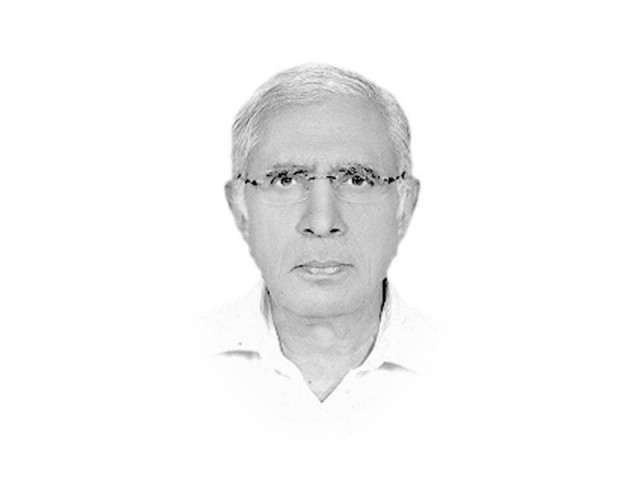Warehouse economy
The burgeoning gap between flagging export proceeds and steeply rising import payments is covered with foreign dole.

The writer is Executive Editor of The Express Tribune
The swelling dole, which is actually debt with strings attached, further worsens the balance of payments position because of the soaring burden of debt repayment on the budget, forcing successive governments to incur ever more condition-ridden debt.
One could get a good idea about our export potential by taking a quick glance at the list of our main exports: cotton and knitwear (28 per cent of total exports); bed wear, carpets and rugs (eight per cent) and rice (eight per cent). Others include leather, fish, sports goods and fruits and vegetables. Main export partners are: the United States (15 per cent of total exports), the United Arab Emirates (10 per cent), Afghanistan (9.5 per cent), China (nine per cent), the United Kingdom (three per cent) and Germany (two per cent). And here is a list of our main imports: machinery, petroleum and petroleum products, chemicals, transport equipment, edible oil, iron and steel, fertiliser and tea. These imports account for over 70 per cent of total imports. Among these categories, machinery, petroleum/petroleum products and chemicals account for over 50 per cent of total imports.
Both lists are depressing. There appears to be no way we can reduce our dependence on the items listed on the import side, unless of course we stumble upon big oil and gas discoveries. And there seems to be no way we can expand the list of our exports or make our manufacturers invest in higher value added exports. And if we continue with this depressing foreign trade regime, we are likely soon to be crushed under an impossible burden of debt, and it is more likely that by that time all sources of loans to pay back the old loans would have dried up with imminent default looming large.
So what do we do now? Continue living with such a depressing foreign trade regime and suffer the imminent consequences or try looking for ways to break the shackles of this regime?
Let us take a look at our comparative advantages: 1) We are an agricultural country; 2) We are a market of about 190 million people; 3) Pakistan is located at the crossings of trade routes from Casablanca in Africa to Kashgar in West China’s Xinjiang Uyghur autonomous region and from Thailand in Southeast Asia to Turkey beyond the Middle East; 4) China and Pakistan are all set to build a 2,000-kilometre economic corridor connecting Kashgar in China to the southwestern Pakistani port of Gwadar with road and rail. And one cannot also rule out the possibility –– in a couple of years –– of overland transit trade route through Pakistan linking India with Afghanistan and beyond. These advantages can be exploited to the maximum if we become a warehouse/trans-shipment economy rather than continue to hanker for an industrial economy, which we have been trying all these 66 years to achieve but without any success.
This would require a well-thought-out trade policy that would allow almost free-of-duty entry of raw materials, intermediaries and equipment in knock-down condition to be warehoused in Pakistan and then forwarded to final destinations after the required value addition. Such a regime would also require letting the rupee appreciate/depreciate on its own without any artificial crutches.
Such a policy would also attract foreign direct investment in avenues in which it would be more economical for the sponsors to fabricate items inside Pakistan for local consumption and also to re-export them. This will also facilitate the transfer of technology and training of skilled manpower. Transfer of appropriate technologies would also open the way for Pakistan from being an agricultural country to becoming a leading high quality processed-food exporter.
Published in The Express Tribune, March 12th, 2014.
Like Opinion & Editorial on Facebook, follow @ETOpEd on Twitter to receive all updates on all our daily pieces.















COMMENTS
Comments are moderated and generally will be posted if they are on-topic and not abusive.
For more information, please see our Comments FAQ